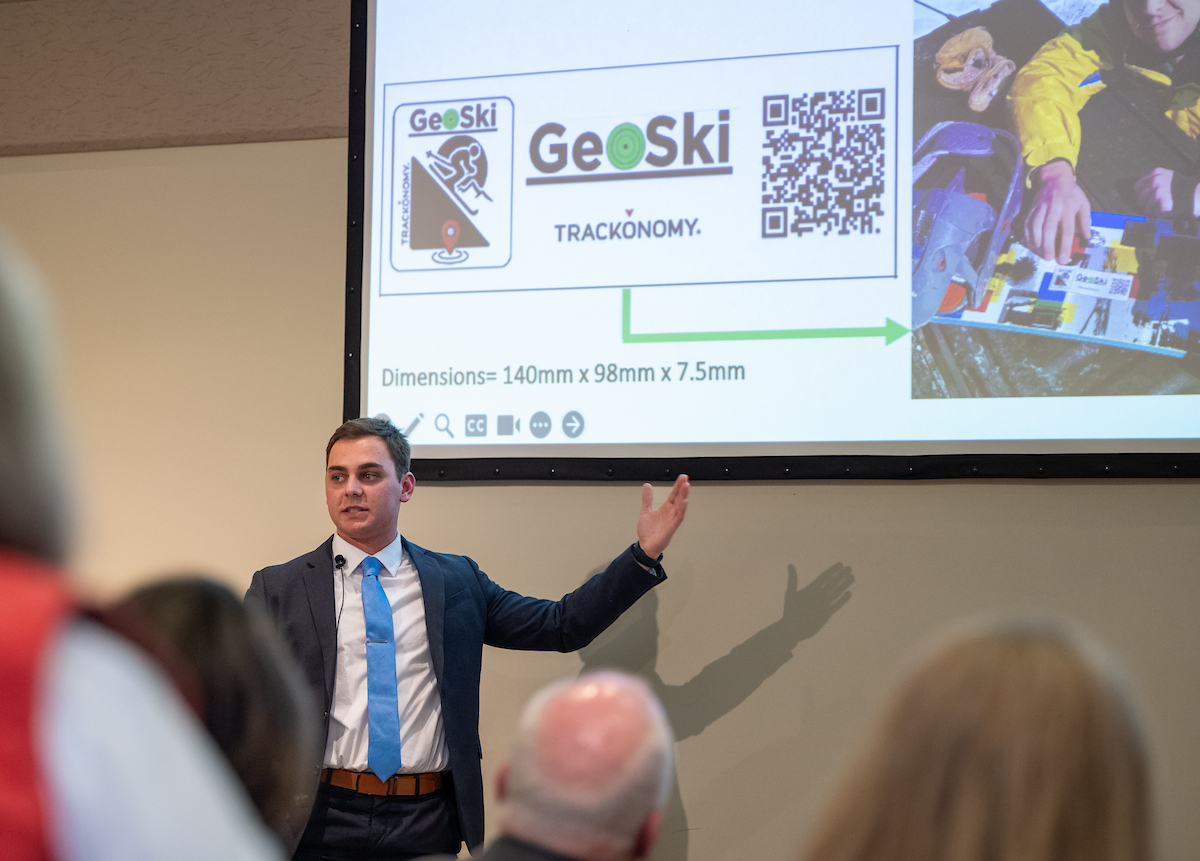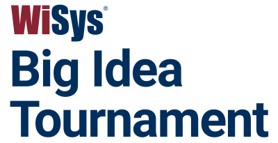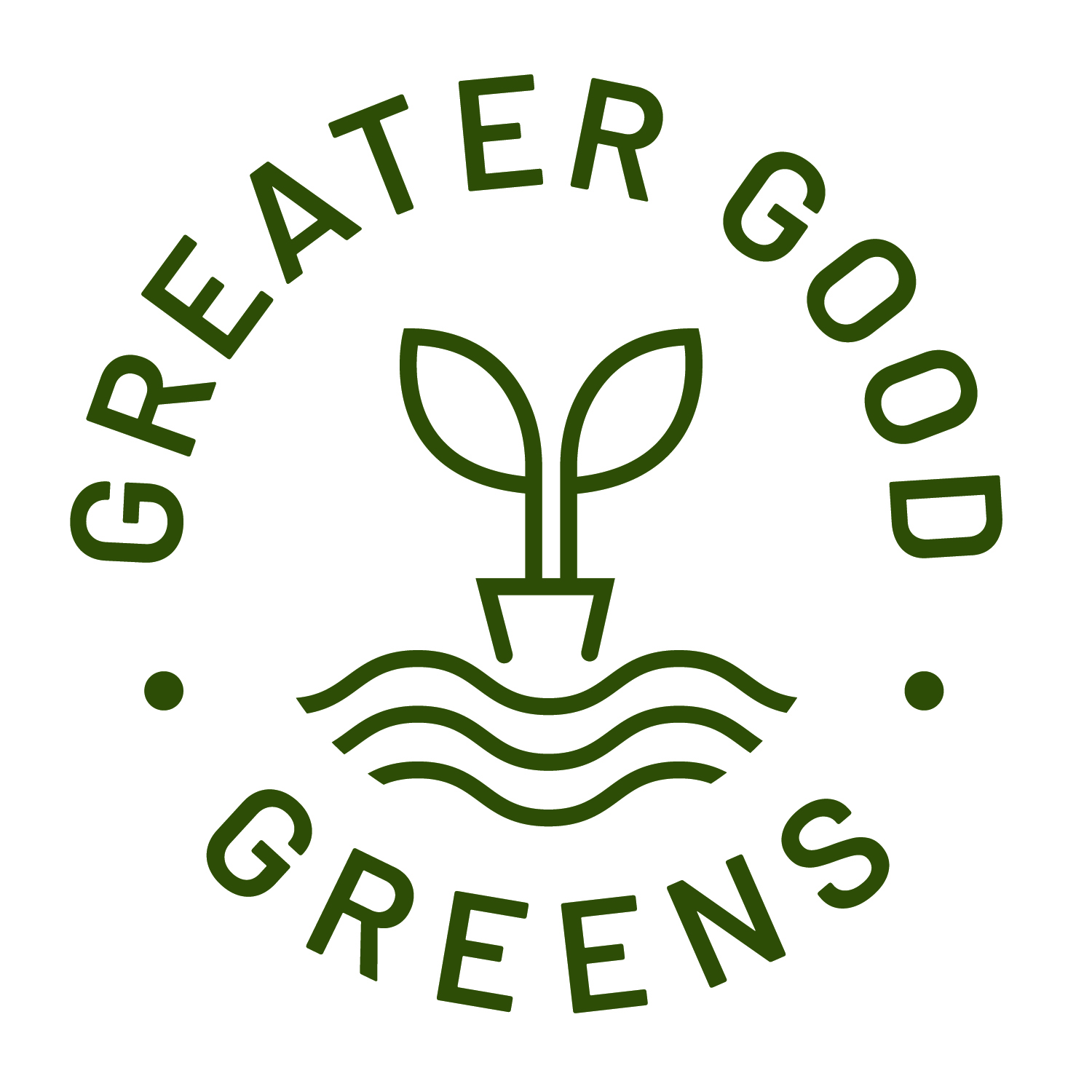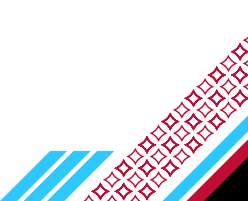Spark Tank! Innovation Challenge
Have a big idea? Undergraduate and graduate students can explore the possibility of turning their business ideas into reality utilizing the Lean Startup Methodology.
Competition Basics
Student teams select a faculty mentor or use Sheri Marnell, the leader of the competition, the register. We'll teach you about how to utilize the required Business Model Canvas and teams will prepare a 6-minute presentation covering your business idea and utilization of the Business Model Canvas. For more information, see the Student Orientation Packet

Prizes and Awards
UWRF Competition
- 1st place = $2,000
- 2nd place = $1,000
- 3rd Place = $500
Wisconsin Big Idea Competition (UWRF 1st place automatically goes to this event, At-Large options for other groups)
- 1st place = $2,500
- 2nd place = $1,500
- 3rd Place = $750
Business stipends must be used for activities or supplies directly related to starting or growing the business idea entered in the competitions.
Additional Incentives
- UWRF 1st place winner is entered into the Wisconsin Big Idea Competition with opportunity to have travel paid for.
- Access to Lean Business Model Startup and other workshops
- Feedback from entrepreneurs and regional business leaders serving as competition judges
- Opportunity to present your business idea to the UWRF Foundation Board for additional funding considerations if applicable.
Frequently Asked Questions
How many members can I have on my team?
Competing teams should consist of at least one and no more than three undergraduate degree-seeking students who are enrolled part-time (minimum of six credit hours) or full-time at a UW System school (except UW-Madison) in the semester of the Wisconsin Big Idea Tournament (spring semester). Graduate teams interested in applying for the International Business Model Competition at-large category must be degree-seeking and enrolled part-time during one semester of the academic year the competition takes place.
Can international students visiting the UWRF campus participate?
Yes, international students are eligible to participate if they are enrolled as an undergraduate with a minimum of six credits in the spring semester.
Must ALL members of the team be enrolled part-time during the spring semester to compete in the Wisconsin Big Idea Tournament?
Non-undergraduate students (or graduates) may be part of the venture but cannot participate in the state or international competition (e.g., pitching, Q&A, etc.). The eligibility requirement is any student participating in the state or international finals needs to be an undergraduate enrolled in a minimum of six credits in the spring semester. In general, a member of the student team should be CEO, COO or president of the venture, or members of the student team should occupy 50 percent or more of the functional area management positions that report directly to the CEO, COO or president.
Can you discuss any concerns regarding intellectual property rights?
Participants own the IP (Intellectual Property) and can disclose to WiSys or file for a patent on their own if they want. We don't require anyone to sign an NDA or non-compete to participate. This defeats the purpose of this type of format and is becoming a standard practice for accelerators and angels/venture capitalists. At the center of what participants are going to be judged on at the State Final is Lean Startup and customer development which shouldn't require dissemination of proprietary information. Participants should instead be focused on telling their learning journey and how they validated (or invalidated and pivoted) the elements of their business model.
What is Lean Startup and the Business Model Canvas?
Check out these resources for more information on this topic.
Can I see an example of a past winner's work?
What if I have an idea but don't want to work on it alone?
We will assist you in finding additional team members if needed. Additionally, feel free to network at the Ideathon event to find other students that may be interested.
How can I find a mentor?
You can connect with Sheri Marnell if you need assistance finding a mentor.
Thanks to our Sponsors!



Past Winners
- 2020: Lahma Bility, Didomi is dedicated to combating water crisis and eliminating waste fields in developing countries. By selling reusable water bottles and keeping plastic water bottles out of the ocean, Didomi uses 50% of profits from every bottle to provide 10 years of water access to someone in Africa who needs it.
- 2019: Jiaxin Li, Lakshmi Priya Girish Kumar and Soren Netka, Unmanned Ramp Manager is an artificial intelligence software program that uses automated license plate detection to improve efficiency and reduce operating costs for parking ramps. Li, of Shenzhen (Guangdong Providence), China, and Kumar, of Bangalore (Bengaluru), India, are graduate students in the Master of Science in Computer Science (MSCS) program, while Netka, of St. Paul, Minn., is an undergraduate taking MSCS level courses.
- 2018: Forrest Close, Miles Petterson and Reid Wilson, Over 25 million Americans suffer from incontinence. Many of these individuals experience issues with leakage, ease of use, poor sizing and embarrassment using the current adult briefs available on the market today. Songen is developing a solution to address these issues and improve quality of life for incontinent individuals. Their newly designed adult brief reduces the chance of leakage by increasing the water retentive properties of the materials. The innovative design makes the product easier to use and enhances dignity for the users. With Songen‘s new and improved adult brief, incontinence is no longer a significant inconvenience.
- 2017: Jennifer Till and David Till, Vetvocate seeks to address the issue of inefficiency in claims processing for disabled veterans. By creating a software program to streamline claims processing, Vetvocate can help advocates save time, money and most importantly, allow disabled veterans to more efficiently receive the benefits they deserve.
- 2016: Michael Mader, According to the Salvation Army, the number one requested item in homeless shelters is socks. HippyFeet provides a solution to this pervasive problem by offering a buy-one give-one product. Purchasing the organic, durable wool socks allows the customer to give back as a pair is automatically donated to a local homeless shelter.
- 2015: Eric Wenz, Andrew Lind and An Trieu, SoPod offers a biodegradable pod technology that would allow travelers to carry body wash, shampoo and conditioners in carry-on luggage while avoiding TSA restrictions.
- 2015: Edward Matsushima, EZPOD is a protein pod product that offers a convenient transportation method for nutritional protein to maximize the benefits by reducing the amount of time between a workout and administration of the supplement.
School of Business and Economics
Monday-Friday, 7:45 a.m.-4:30 p.m.

